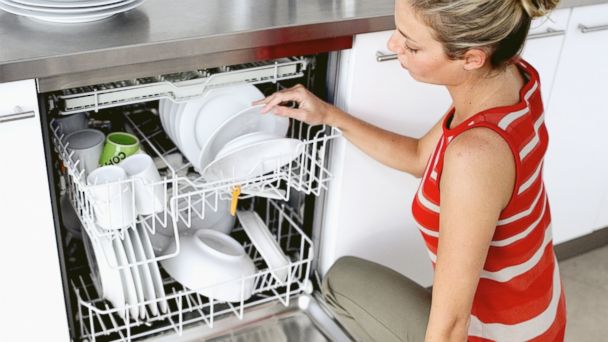Does Dishwasher Cooking Really Work?

You can do chores and cook food at the same time--all in your dishwasher. But do you want to?
In the avalanche of turkey recipes released in the past month, one in particular stood out: a dishwasher-cooked version, and from a famous chef, no less. David Burke, known for such innovations as pastrami salmon and cake pops, swears by this method that cooks the poultry through four cycles of a dishwasher.
A quick Google search of "dishwasher cooking" leads to recipes for salmon, lasagna, potatoes and more. There's an entire cookbook devoted to the method, and Oprah has even weighed in on the subject with salmon, pasta and vegetable recipes.
So it's proved it can be done, but the real question here is why. Why would someone decide to use a dishwasher to cook food over more traditional methods such as the oven, grill or stove?
Dan Pashman, creator and host of the Sporkful food podcast, devoted a show to dishwasher cooking and came away with a number of insights.
"I tried a whole bunch of different foods. Some were very successful and some were pretty disastrous, though nothing so disastrous that it broke my dishwasher," Pashman said. "You can really try anything - there's nothing to lose other than the food. But the most important thing to know is that you have to make sure the food is sealed really well."
The classic and most well-known dishwasher recipe - salmon - calls for a tightly sealed foil packet, but Pashman also recommends ball jars and vacuum-packed plastic bags to keep water and soap out.
Once you have an airtight package, the food possibilities are endless, though Pashman found that lighter, less dense foods cook better. "In general, if you're looking for the types of dishes that you might want to cook in the dishwasher, the best ones are foods that you poach, because the cooking technique is very similar to poaching," Pashman said. "Take a minute to find out what temperatures your different dishwasher cycles go to. You want it to hit at least 140 degrees for most foods."
Pashman experimented with lobster, scallops, Korean beef bulgogi, eggs, mussels, clams, couscous, pears and more for his podcast, but he hasn't returned to the method since. "It does make salmon well, and the poached pears were great," Pashman said. "But were they better? Not necessarily."
While the method may be great for multi-taskers and the environmentally-friendly looking to get chores and dinner done at the same time, cooking in your dishwasher is mainly a good party trick.
"I would do it for a party just to impress friends. Your friends show up and you have sink full of dirty dishes and there's no food," Pashman said. "And you load all the dirty dishes and drop the food in the nooks and crannies, pour some drinks, run the dishwasher, take out the clean plates and serve the dinner. It's a fun twist and people will remember that. If you practice and know what you're doing, the food will taste great."
Dan Pashman's Bourbon Poached Pears in the Dishwasher
Makes 4 servings
Ingredients:
4 firm, ripe Bosc or Bartlett pears
4 cups water
1 cup brown sugar
1/2 cup honey
1/2 cup bourbon
1 teaspoon cinnamon
1 teaspoon nutmeg
1 vanilla bean (split and scraped-use the insides and discard the skin)
Directions:
Combine water, brown sugar, honey, cinnamon, nutmeg and vanilla bean in a saucepan on medium heat. Stir until spices are dissolved. Peel pears, leaving the stems, and halve them, scooping out the seeds. In a large ball jar combine pears, contents of saucepan and bourbon. If pears are not completely covered by liquid, add a bit more water. Mix gently. Cook in dishwasher on regular cycle.